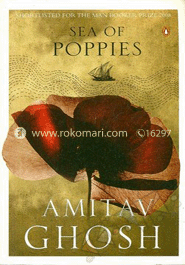
Set partly in Bengal, the scene of Grierson’s inquiry, and drawing on accounts the Englishman left, it opens in 1838 on the eve of the Opium Wars. In his ambitious new novel, “Sea of Poppies,” a finalist for this year’s Man Booker Prize, Amitav Ghosh attempts to fill in the blanks left by the archives.

In his diary, Grierson wrote about an encounter with the father of one female coolie in a village along the Ganges, noting that the man “denied having any such relative, and probably she had gone wrong and been disowned by him.” The historical record provides only a trace of this woman: a name, a processing number, a year of emigration. In 1883, the British government sent the accomplished linguist Sir George Grierson to look into alleged abuses in the recruitment of indentured servants from India (known as “coolies”) who ended up on ships bound for British plantations throughout the world.

But it is the panorama of characters, whose diaspora encapsulates the vexed colonial history of the East itself, that makes Sea of Poppies so breathtakingly alive-a masterpiece from one of the world’s finest novelists. The vast sweep of this historical adventure spans the lush poppy fields of the Ganges, the rolling high seas, the exotic backstreets of Canton. An unlikely dynasty is born, which will span continents, races, and generations. As their old family ties are washed away, they, like their historical counterparts, come to view themselves as jahaj-bhais, or ship-brothers. In a time of colonial upheaval, fate has thrown together a diverse cast of Indians and Westerners, from a bankrupt raja to a widowed tribeswoman, from a mulatto American freedman to a freespirited French orphan. As for the crew, they are a motley array of sailors and stowaways, coolies and convicts.

Its destiny is a tumultuous voyage across the Indian Ocean its purpose, to fight China’s vicious nineteenth-century Opium Wars.

At the heart of this vibrant saga is a vast ship, the Ibis.


 0 kommentar(er)
0 kommentar(er)
